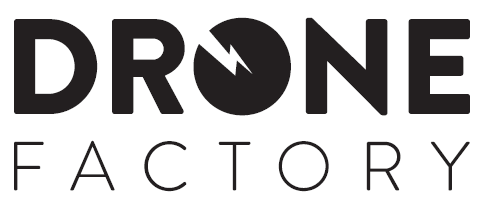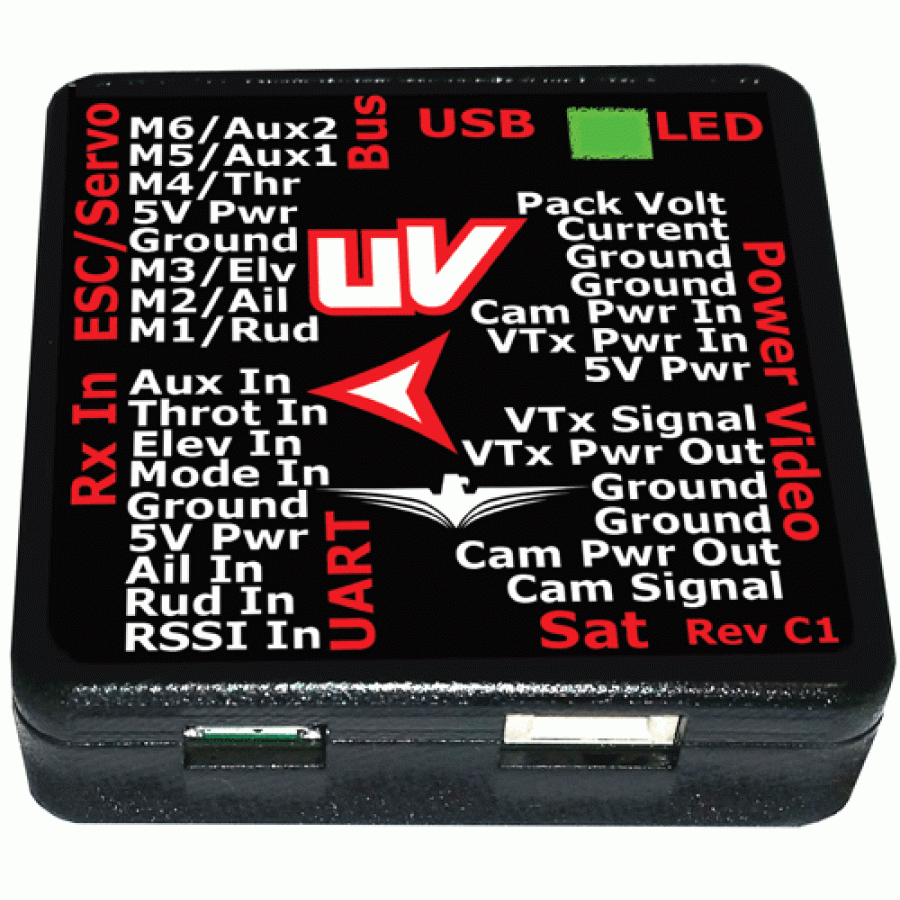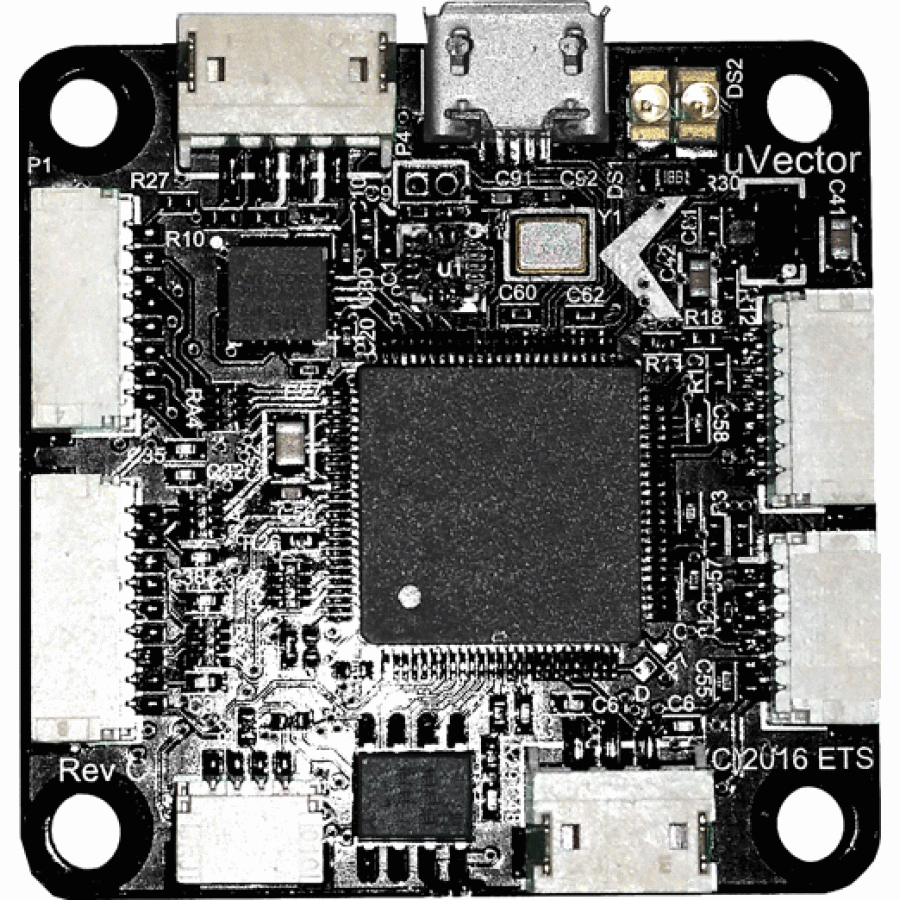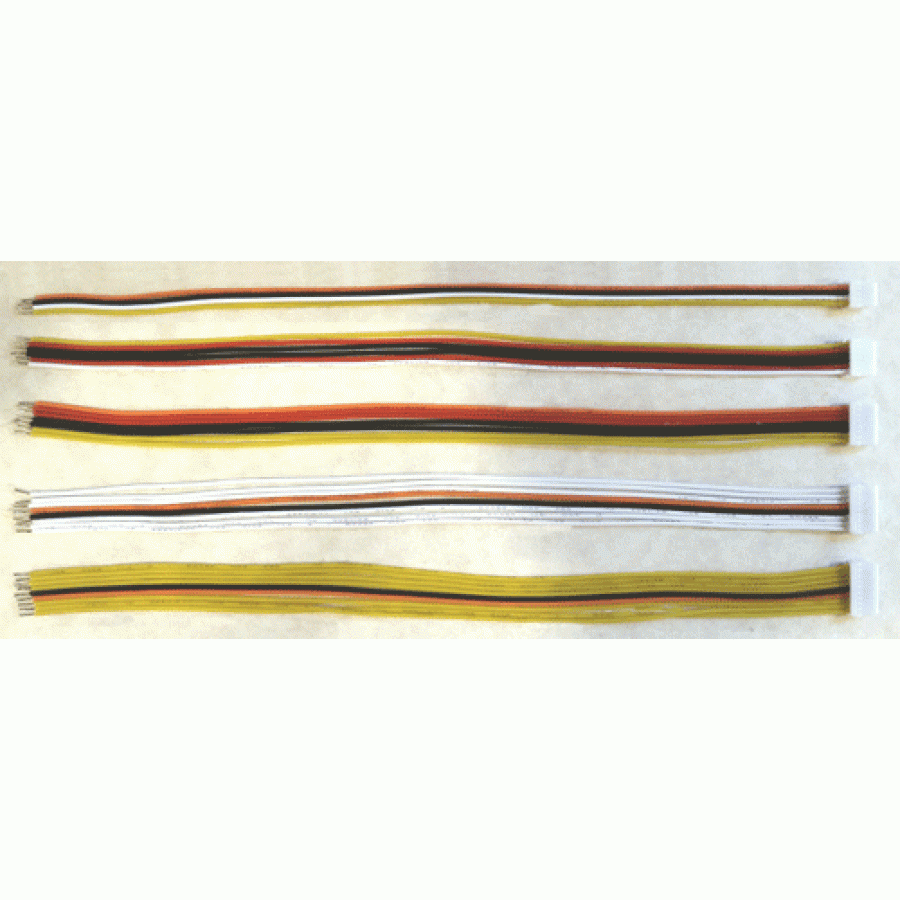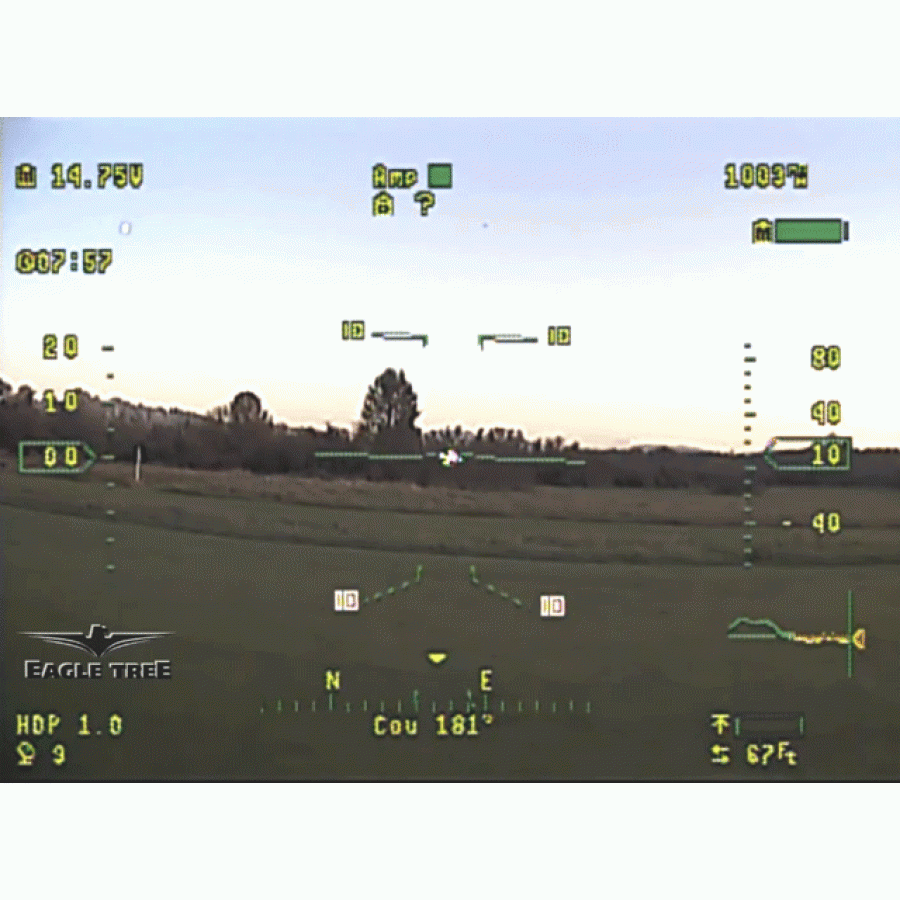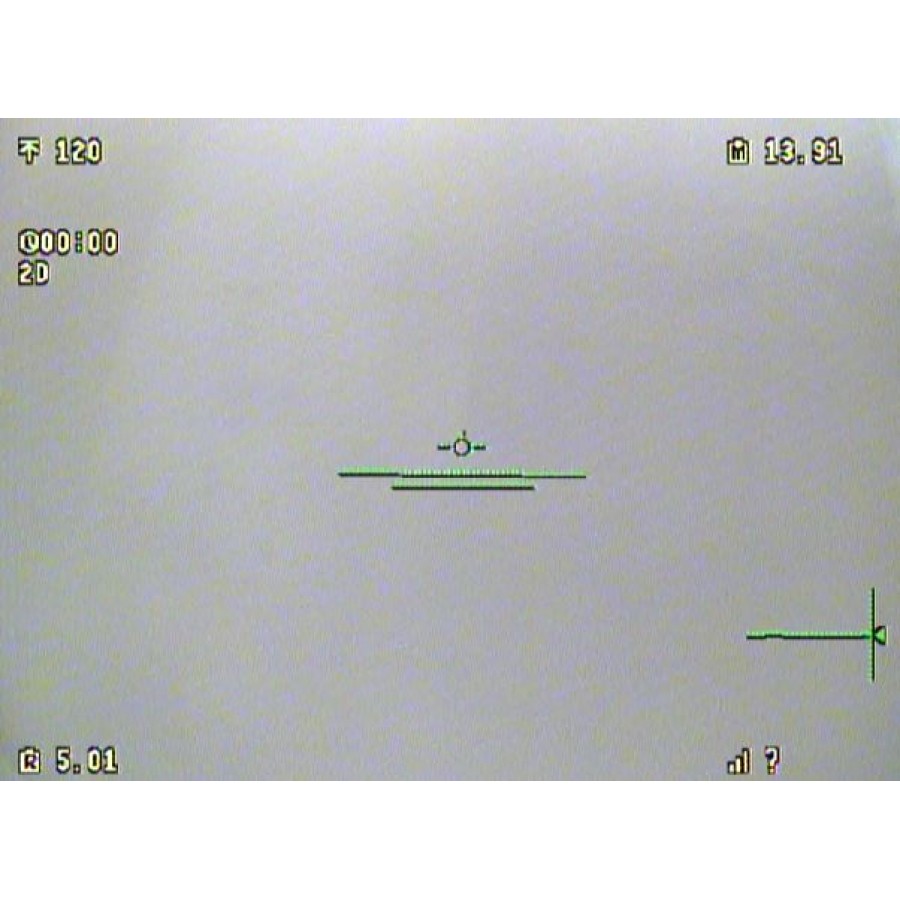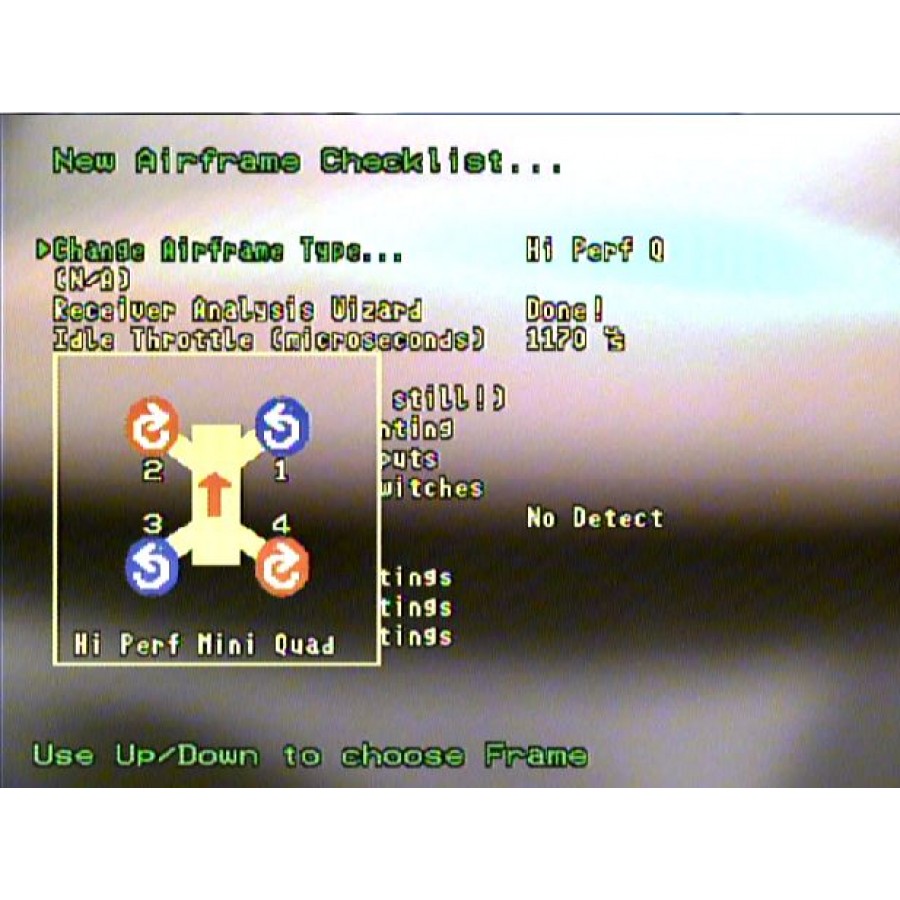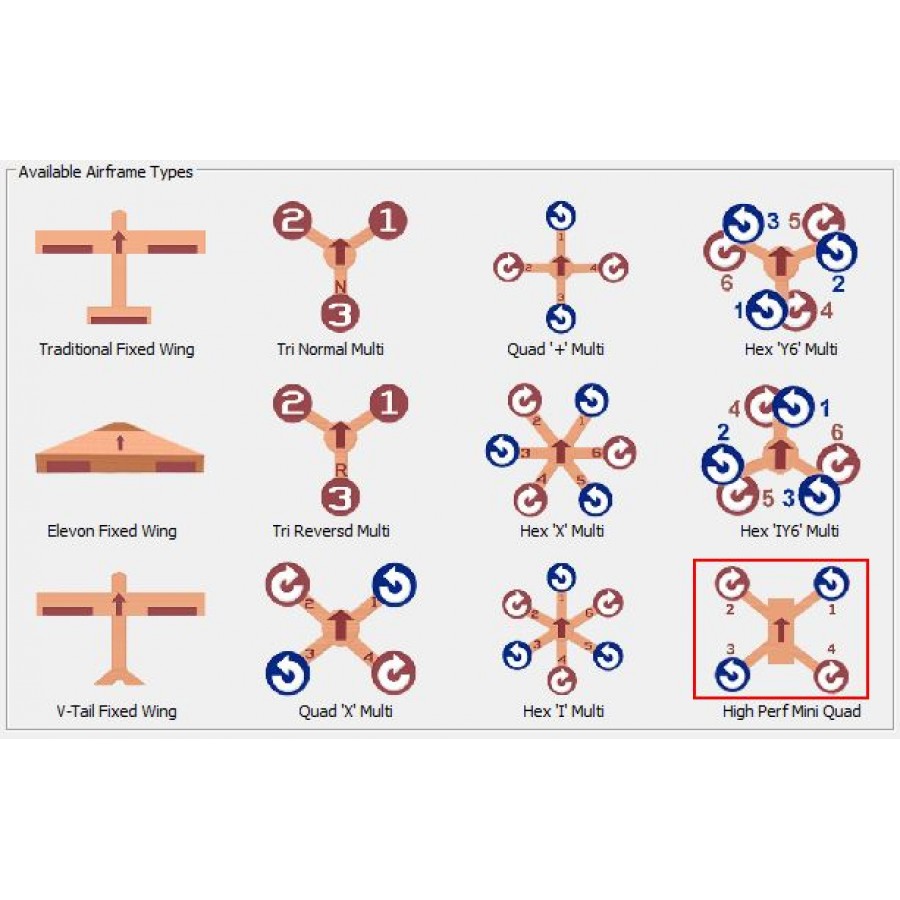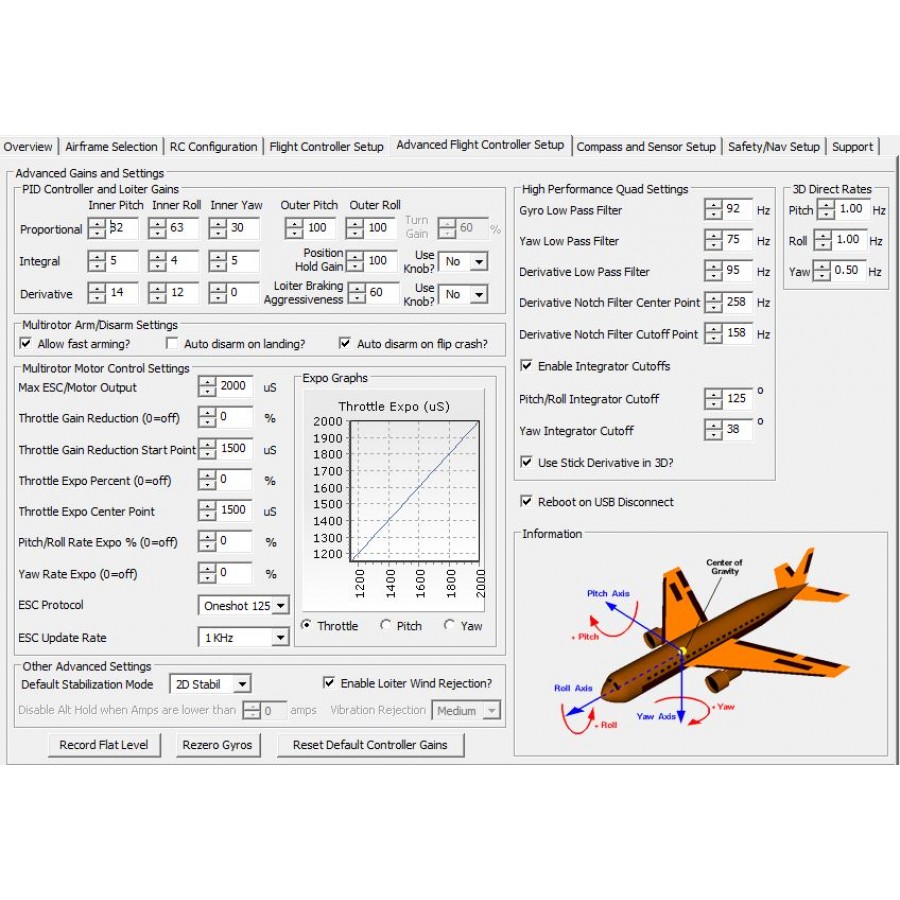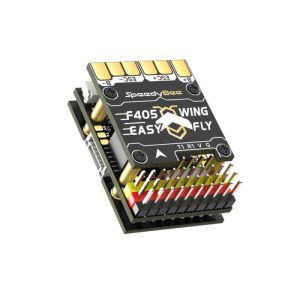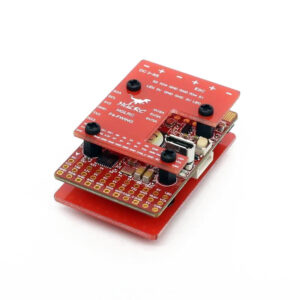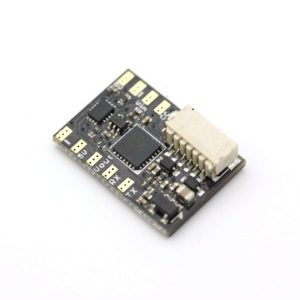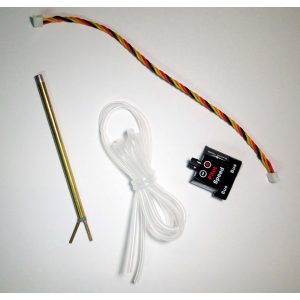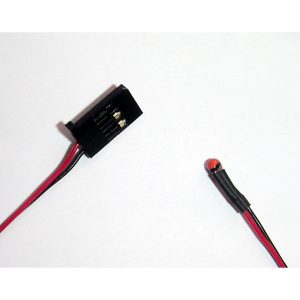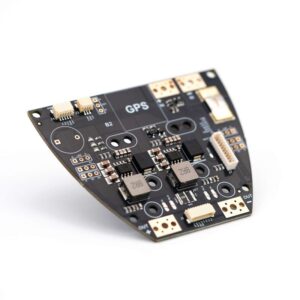Beschreibung
Whether you’re into FPV racing, freestyling, or camshipping, the MicroVector (µV) integrated Flight Controller and OSD should be perfect for your small FPV mulitrotor or fixed wing model!
Why you need the µV:
Easy Configuration
► Fully set up and tune your µV three convenient ways:
* Windows GUI
* OSD stick menus at the field
* Optional InfoPanel LCD


► Built-in wizards to make setting up even easier
Features
► Built in OSD with COLOR GRAPHICS and fully customizable screens
► Programmable video power control: Turn on/off your video camera and/or video transmitter using a radio switch, on arm/disarm, etc.
► SkyGates Virtual Racing (Experimental Augmented Reality, Optional GPS required)
► Built in Flight Data Recorder/data logger helps take out the guesswork if something goes wrong


Performance
► Fast 32 bit microcontroller
► DMA enhanced control loop running at up to 8 kHz
► Advanced PID and filter tuning from either the GUI, or stick menus at the field
► Oneshot and Multishot ESC Protocols

Compatibility
► Standard 30.5mm mounting hole centers
► PWM, SPPM, Spektrum Satellite and S-BUS Receivers supported, with 4 types of RSSI
► BLHeli ESC configuration via the µV USB port
► Compatible with most PDBs, including those with built in current sensors (or use our PSU)
► Multirotor airframes: Racing Quadcopter, Standard Quadcopter, Tricopter, Y6, Hexacopter
► Fixed wing airframes: Traditional, Elevon, V-tail
Expandability
► Add our dual band GPS module for advanced GPS flight modes, RTH, and waypoints
► Antenna tracking and laptop position display available with our EagleEyes FPV Station
► Other accessories include 12V/5V PSU/Current Sensor (using this cable), Alerter LED/Buzzer, Pitot tube for Airspeed, and InfoPanel LCD Display
► UART for telemetry, including ET Open Telemetry, DragonLink, and Taranis (pigtail cable included)
Click here to see the wide range of accessories available for the μV, including those shown below!
Eagle Tree Quality and Support
► Each µV is fully tested, and undergoes an 18 point hand calibration for best performance
► World Class Eagle Tree support via web ticket and forum discussion


What’s Included
► µV with plastic case (4 screws)
► Set of 5 rugged „pigtail“ cables for precise installation

Join the online μV forum discussions:
RCGroups Forum μV Thread
FPVLab Forum μV Thread
MicroVector and Vector Differences
The MicroVector and Vector capabilities and features are very similar. The table below shows some of the main DIFFERENCES:

Feature Details
The μV’s feature list is quite long, so what follows is an overview of the main features:
Full Color OSD
Fully configurable to suit your taste, the μV’s built-in OSD provides features found only in the Vector product line.
Smooth, razor sharp color graphics: Tired of staring at hard to read white text with clunky graphics? The μV changes all that. WARNING: A full color OSD can be addictive! 🙂 Colors are fully adjustable to your preference.


Note: images above show readouts from optional PSU/Current Sensor.
In addition to the graphical features shown above, nearly all of the μV’s parameters can be displayed in 3 ways:
- Numeric – same as always, but in color, with programmable flashing color alarms
- Gauge – you can easily set up parameters to be displayed in gauge format, with programmable color thresholds
- Swatch – instead of staring at a number, you can set up a simple color square (we call them swatches) with programable color changes, to easily see when a parameter needs your attention.
No Camera operation: If your camera fails in flight, the OSD continues to operate in „no camera“ mode. This is also handy if you want to configure the μV via your radio, but don’t have a camera connected.
RSSI: The μV supports 4 types of RSSI:
- Analog – fully buffered input
- PWM – some receivers output a varying pulserate to indicate signal strength, which the μV supports.
- Spektrum – all Spektrum FlightLog telemetry parameters are available for display
- Virtual SPPM RSSI -some receivers output RSSI and link quality via the SPPM interface, which is supported
Fast, easy control and menuing system: The μV utilizes switch „gestures“ and your control stick to let you rapidly scroll through menus and change parameters. All OSD parameters can be configured via the stick menus!
Kitchen sink: Of course, all the other OSD features you’ve come to expect from Eagle Tree, such as RADAR, ladders, compass, full ‚F16‘ as well as simple AHI, waypoints, and a huge list of parameters available for display are there in the μV.
Flight Controller
Utilizing our proven Guardian technology, the μV’s built-in, full featured flight controller is equally at home with both fixed wing (traditional, elevon, v-tail, etc.) and multirotor (tricopter, quadcopter, hexacopter, Y6) aircraft. And, since the controller is fully integrated with the OSD, everything can be adjusted via the onscreen menus, rather than needing to drag a laptop or other device to the field.
Numerous flight modes are available, and are easily selectable via one or more switches on your radio:
2D: Multirotor or fixed wing leveling with or without altitude and heading hold
3D: Direct rate 3D with or without heading lock, for doing acrobatics when you get bored just flying along. 🙂 Great for holding 3D positions such as knife edges or inverted flight, or doing flips with your quad (experts only!). Pitch, roll and yaw direct rates are programmable of course.
Additionally, the following GPS control modes are supported (GPS sold separately):
Return to Home (RTH): Whether you fly fixed wing or multirotors, our advanced RTH algorithm means few if any adjustments are needed.
Geofence: Lets you program a maximum ceiling and distance, to avoid flyaways or exceeding altitude restrictions
Waypoints: program automatic waypoints and fly them
Loiter: For multirotors, this holds the present position using the altimeter and GPS, and for fixed wing, the plane circles when loiter is triggered
Cartesian: This multirotor control mode remembers the direction that the ‘copter was pointing when it was last armed, translating your pitch and roll commands to that frame of reference and reducing 3rd person pilot workload. Stick-left makes it fly to the left, stick-back makes it fly back towards you, etc.
Polar: This multirotor control mode brings the copter toward home when you pull back on the stick, and moves the copter in a circular path around home when you move the stick left or right.
Radio Control Interface
The μV’s receiver input harness with labeled connectors makes it easy to connect to any receiver.
The μV supports three types of RC inputs:
Standard/PCM: The μV’s labeled servo connectors just plug into the appropriate receiver channels
SPPM, S-BUS and Spektrum Satellite: A single cable connects to your SPPM or Futaba compatible S.BUS outputs, or to your Spektrum Satellite, for reduced wiring and more flexibility. The PC software lets you fully customize the meanings of up to 14 serial channels, making it easy to support a variety of OSD features.
The μV’’s flight modes are easily accessed via a 2, 3 or 5 position “mode switch” on your radio. Further, a “submode” switch can be configured to allow more modes to be easily selected during flight. The meaning of each switch position is easily programmable via the μV’s menus.

Powerful PC Setup Software
Want to configure your μV via your PC or laptop? Our powerful, interactive PC software and the μV’s USB interface make this easy. Configuration files let you easily move your μV from model to model without needing to reconfigure everything. Tabs for visualizing GPS flight data, manual waypoint management, and many others make it quick and simple to fully utilize your μV.

Data Logging and Telemetry
Of course, the μV fully supports data logging of sensor and GPS parameters via internal storage, and our PC software lets you display, graph, visualize and save the data. Variable logging rates and advanced logging triggers are supported.

The μV also embeds real-time telemetry in the video signal for use with the EagleEyes ground station.
Further, the μV’s UART port is compatible with open source telemetry transmitters and other hardware. Taranis and DragonLink telemetry is currently supported.
ALL MICROVECTOR INFORMATION SUBJECT TO CHANGE.
All brand and product names are trademarks of their respective holders
